Proudly powered by the Fulbright Foundation in Greece, this issue’s Thought Leaders features representatives of top academic institutions as well as Fulbright alumni. In the following pages, this year’s education experts discuss the importance of being able to unlearn and relearn and to think creatively, unconventionally and resourcefully. They also ask a number of critical questions: How can educators cultivate the ability to look at things from new perspectives, differently from the way teachers and students typically look at things? How can we encourage students to approach learning with a different mindset and a new outlook and stimulate independent learning that results in comprehending rather than parroting the subject? How can students learn how to access and process information and then apply that knowledge and understanding through problem solving? One thing is certain, our Thought Leaders will make you think out of the box.


Why We Should Care About an Entrepreneurial Mindset
By Dr. Roxanne Giampapa, Head of School, Pinewood American International School of Thessaloniki
Yuval Harari’s posits that “In a world deluged with irrelevant information, clarity is power.” If we agree with Harari, the question for educators becomes: How do we use school to achieve clarity for our students so that they acquire power, i.e. individual agency?
The answer is simple. Cultivate the kind of knowledge that is relevant and transferrable well after students finish high school. I don’t mean knowledge that the internet can provide. I mean something infinitely more valuable—knowledge defined, among other things, by an entrepreneurial mindset, or the capacity to think in interdisciplinary ways in order to act upon ideas that create value.
At Pinewood, we are embedding this entrepreneurial mindset into students’ learning experiences through a series of in-house, custom-designed courses that build students’ knowledge as competencies, including initiative, creativity, adaptability, and critical thinking. As such, the lines between knowledge and competencies become suitably blurred.
For example, one Pinewood course, The Escape Room, challenges students to view failure with a fresh perspective by encouraging them to use mathematics, logic and reasoning skills to create an escape room for their peers and teachers. First attempts invariably fail and result in disappointment and frustration. However, as students move through stages of experimentation and improvement, they gradually begin to view their unsuccessful attempts not as failures but as instrumental iterations towards their goal. Thus, the concept of failure is relearned to signify iteration.
Why should we care? Because this is individual agency at its best. It’s an incredible shift in mindset that is not only transformational but also transferrable to all other areas of learning. Imagine the potential that can be cultivated around such a mindset.

Unlearning and Relearning Gender
By Dr. Apostolos Poulios, Teacher of English and Music, Ilion Music High School; Member of Rainbow School; Fulbright Alumnus
We often take gender stereotypes for granted. We tend to comply with societal norms according to which certain toys are suitable only for girls and specific jobs are suitable only for men. We might tolerate supposedly “innocent” sexist jokes that reflect patriarchal and heteronormative values of our society. We might even encourage “friendly” displays of violence or subtle forms of sexual harassment through which adolescents are expected to confirm masculinity stereotypes. We do not complain about the invisibility of gay people or the denial of trans people’s rights because we think they should comprise a silent minority.
These are only some of the restrictions imposed by traditional gender norms and internalized heteronormative beliefs. However, such norms and beliefs may cause numerous young people to experience bullying that hurts their souls and bodies. As a result, LGBTQI teenagers cannot seek alliances but, instead, encounter barriers that hinder communication and restrict their individual potential. Instead of being allowed to flourish, they feel oppressed, ashamed and isolated, and are sometimes tragically led to suicide.
Democratic societies should secure human rights through education: All young people, whether heterosexual or LGBTQI, must feel free to express themselves, be given opportunities to fulfill their potential and manage to create successful relationships that will allow them to enjoy friendship, love and companionship. We, as educators, should strive to create a safe, inclusive school environment by embracing diversity and challenging sexist, homophobic or transphobic stereotypes, and thus help future citizens to thrive in an inclusive society whose members will be mutually supportive and feel safe, accepted and happy.
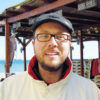
Cross-Curricular Learning with Short Films
By Athanasios Tsapelis, English Language Teacher, Second Junior High School of Kos; Co-founder, Edushorts.com; Fulbright Alumnus
Twelve years ago, I arrived on the Greek island of Kos to teach English as a foreign language in a state middle school, but my students made it clear that they were fed up with traditional listening practice and grammar exercises.
At first, I decided to introduce some cinema into the curriculum, and we started watching movies with English subtitles. I was mainly using movies for listening practice and as conversation starters, but I wasn’t completely satisfied because I had to divide a movie into segments, so movie viewings would span many lessons, and also too much information and vocabulary had to be dealt with. It was about this time that I feverishly started collecting short films for classroom use.
Although my students liked my short-film lessons, I still thought something was missing, so I decided to combine short films with drama games, painting, dancing improvisation, and creative writing. Furthermore, apart from including those cross-curricular activities, I started building my lessons around specific themes such as responsibility, toxic masculinity, body image, bullying, divorce, addictions, and peer pressure.
In 2013, after returning from the Study of the U.S. Institutes for Secondary School Educators Fulbright program, I decided to reach out to educators in Greece to share my teaching experiences with short films. At a short-film workshop, which I was facilitating, I met primary educator and web designer Panos Kapiris, and edushorts.com was born! Edushorts is a non-profit educational platform that offers selected short films and teaching scenarios and also organizes workshops for educators and students.
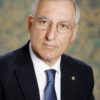
Fostering Educational Dialogue and Active Research
By Dr. Stefanos Gialamas, President, ACS Athens
As 21st century educators, we are true believers that K-12 educational institutions not only have the ability to generate new knowledge related to teaching and learning but also can become innovators and researchers, creating new pathways for the future of education. Current educational trends, as well as the uncertainty of rapid change globally, require a dialogue between K-12 and higher education institutions to best prepare tomorrow’s citizens for an unknown career, as well as for professional development and growth of faculty, professionals and administrators. Such partnerships effectively prepare students, ensure continuous adult development for educators as well as encourage students to become lifelong learners. Now more than ever, there is a need for a meaningful dialogue between K-12 and higher education. Fostering this dialogue regarding content development, methodology and action research within schools requires professional development that will encourage faculty and administrators to become agents guiding change.
The International Schools Journal is the forum for educators, professionals, and administrators from K-12 and higher education institutions to connect, collaborate, and enhance such synergies for the benefit of all learners. This publication invites educators to share their knowledge, creativity, action research, and innovation. Now is the century when sharing ideas, research results, and accomplishments become the foundation for the advancement of knowledge, out-of-the-box thinking, and decision-making. ACS Athens is proud to be the new publisher of this esteemed journal, paving the way for the K-to-Graduate education paradigm, as we envision 21st-century education.
ACS Athens is the new publisher of the International Schools Journal: www.isjournal.eu

Learning Attitude
By Dr. Kostas Axarloglou, Dean Alba Graduate Business School, The American College of Greece; Professor of International Business and Strategy; Fulbright Alumnus
In a VUCA (Volatile, Uncertain, Complex and Ambiguous) world, what is meaningful or valuable today will most likely be irrelevant tomorrow. We must all be able to comprehend new and complex economic and social patterns quickly and effectively. We must be able to apply what we learn in different situations so that we can make sense of things we have never seen or done before. We must be able to adapt quickly to rapidly evolving norms and patterns.
In such a disruptive and non-linear world, it is hard to imagine an educational system that prepares students with skills and competencies that last for long, as these skills and competencies become unexpectedly and frequently obsolete. Instead, “human skills such as creativity, originality, initiative, [and] critical thinking, …. will likewise retain or increase their value.”1 Learners need to go beyond acquired skills and competencies: They must be curious enough to continuously search and think out of the box, humble enough to realize that their “box” is not relevant anymore, and adaptable enough to function within the “new box” for as long as it lasts; they must develop an attitude of continuous learning.
Education then, beyond focusing on relevant skills and competencies, must help learners to develop an attitude for continuous learning through curricula and learning initiatives that expose learners to a wealth of diverse learning stimuli (in a learning ecosystem where the educational institution is the integrator of the rest of the ecosystem), through experiential learning, and network and team learning. After all, in the VUCA world, “learning is power.”
1 “The Future of Jobs Report 2018,” World Economic Forum.
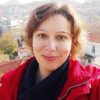
Teaching 21st Century Competencies
By Areti Sidiropoulou, English Language Teacher, Zagora High School, Magnesia, Thessaly; Creator of MusicLexis; Fulbright Alumna
We live in a technology-rich world, where all fields of knowledge are growing rapidly, new content is produced relentlessly and social and environmental problems are mounting. The basic skills of numeracy and literacy are not sufficient, and it is not as important to acquire knowledge as to be able to apply it and use it creatively. We need citizens who are able to think critically, interpret and evaluate content, and combine their knowledge of several subject areas to solve all kinds of real-life problems.
The focus of education now is not on the acquisition of knowledge but on the development of skills, the so-called 21st century competencies. Competencies such as collaboration, critical thinking, problem-solving, global citizenship, sense of initiative and entrepreneurship. The ability to think out of the box, in creative and innovative ways, is itself one of the most important competencies students must develop, as we need new ideas that will move the world forward.
The best ways to teach innovation and creativity, as well as the rest of the 21st century competencies, are the following: Offering students new experiences in order to teach them about the real world, especially by going beyond the classroom walls and collaborating with the wider community, encouraging students to examine any problem or issue through multiple perspectives, assigning projects and tasks which are imaginative, open-ended and multidisciplinary, and offering students plenty of opportunities to create and to express themselves.
Educators must remember that learning is lifelong. School education is there to lay the foundation of future lifelong learning. By teaching 21st century competences at school, we are helping prepare future autonomous learners and active citizens.

Empowering Students to Meet the Challenges of a Changing World
By Sophia Katsaouni, M.A., Principal, Othisi Junior High School, Attica; Fulbright Alumna
Education is changing rapidly; educators have ceased to be the authority in the classroom. In an ever-changing world, students encounter new challenges and are deluged with infinite resources at the click of a button. Education should provide them with the tools to make informed decisions and become independent life-long learners.
Problem solving requires a combination of hard and soft skills, which educators should help students acquire. They should approach teaching and learning in a different, unconventional way. Teaching should be in context and relate to students’ needs and experiences. Educators should encourage students to think creatively and resourcefully. This is far from easy within the Greek educational system, where students are trained in sterile memorization as a means to achieve high scores in exams. These deep-rooted views are resistant to change, but we, like our students, have to unlearn and relearn. We should motivate students to rediscover their lost—since pre-school years—curiosity for the world, urge them to search for information, rather than readily provide it, allow them to experiment and interact in team projects, teach them world citizenship by embracing tolerance and solidarity as well as responsibility and respect. We should boost their self-esteem and practice the values we teach.
At Othisi we address students’ different needs and intelligences and empower them to attain their full potential and wellbeing. After all, educators should assume the role of inspiring leaders, who prepare their students to navigate even in uncharted waters.
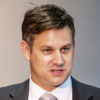
Think Differently—Think Disruptively
By Matthew Williams, Headteacher, Byron College
Students not only need to think outside the box but they also need to adopt disruptive thinking methods. They should challenge the status quo and be prepared to think differently. Schools must become breeding grounds for creative, independent and reflective free thinkers.
Educators want students to reach their potential, but lifelong learners never reach this. They constantly question and search for answers, and it is as important to learn about failure as it is to succeed. For students to learn metacognition, we must first empower our teachers to have the confidence to allow experimentation and discussion. Inquiry-based learning will not only instill a sense of self-belief but will also provide the necessary platform for pushing beyond our own boundaries. For students to think disruptively, first our teachers must have the courage to think differently. After all, we have to teach our children to make an impact in a world using technology that has not been invented yet and to face challenges unthought of.
Our up and coming collaboration with Oxford Global to provide a summit which challenges students to explore beyond any school curriculum, to think innovatively and to make links between different disciplines which can produce eureka moments is testament to this.
A school is a community and individuals are important as the group is made stronger by each character within it. As educators, our task is to develop the self-confidence of our learners to have courage in their convictions, be fearless of failure and to dare to dream.
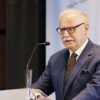
Learning Knowledge Acquisition Through Research Projects
By Leonidas Phoebus Koskos, Esq., President, Hellenic American University/ Hellenic American College
Sector sustainability, expenditure rationalization and R&D investments are the three pillars that will define the future of Greece’s pharmaceutical industry.
Sector sustainability: Public pharmaceutical expenditure has been reduced by over 60% since 2009 at the expense of patients and the pharmaceutical sector, which has contributed over 43% of the annual expenditure through clawbacks and rebates, pointing to a definite gap between the available budget and actual patient needs in the country. Additional funds must be allocated according to the needs of the Greek population, increasing the budget to realistic levels and allowing time to see the implementation of not yet materialized reforms.
Streamlined expenditure: Lifting all protection measures that exist today in the pricing system would allow faster penetration of usage of generics and biosimilars, ensuring the necessary savings needed to make room for innovation and contributing to a viable healthcare system. The abolition of the 25% additional rebate on new pharmaceutical products and a gradual decrease of rebates from 5% to 1% for 5 years would be an important step toward making innovative products and treatments available to Greek patients while also allowing the state to reap the financial benefits.
R&D enhancement: The pharmaceutical sector can contribute significantly to Greece’s economy and competitiveness by increasing investments in clinical trials in Greece. Subtracting from clawback the investments on clinical trials could result in investments rising to €200 million within in a couple of years, possibly as high as €1 billion over the next decade as enjoyed by Belgium today.

Education That Creates a Lasting Impact
By Christiana Prekezes, Executive Coordinator, HELMEPA
Environmental education is definitely challenging as it is not so much about learning facts and figures, understanding processes and comprehending realities of a complex natural world as it is about instilling a consciousness and nurturing a culture of responsibility for the planet’s wellbeing. That’s why this subject is particularly suited for an experiential learning approach, both in and out of the classroom.
Motivated educators, if given the appropriate tools, can effectively guide students along their path for self-discovery, awareness, target setting, expression, and creativity.
One such tool is the voluntary environmental education program “HELMEPA Junior”, which has been operating successfully in Greece for the last 25 years. Children, ages 5 to 13, are offered an alternative learning method, building on their enthusiasm and candid interest to urge them to work in groups, undertake activities and open-ended assignments, seek solutions, and share results.
Being involved in the program since its beginning, I have followed its assessment by the 3,900 participating teachers over the years. The program’s success lies in the active participation of students in learning: discovering new knowledge themselves, discussing openly in class, role-playing, communicating their concerns to classmates, parents, local authorities and residents, learning first-hand from professionals in marine occupations, assuming the responsibility of “adopting” a beach, and other activities. The result is twofold: (a) kids feel proud of the effects of their actions as they are acknowledged by the local community and HELMEPA, and (b) they develop essential social skills, including team building and critical thinking, and advance their personal development in general. This is education that creates a lasting impact!
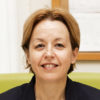
Re-Designing Education for the Future
By Dr. Haido Samaras, Director of Instructional Design and Development, Anatolia College; Academic Dean, CTY Greece
Within a world being exponentially transformed by digital, physical and biological technologies powered by Artificial Intelligence, education is dramatically expanding its horizons. New opportunities and challenges are emerging, and it is the responsibility of educational designers and policymakers to decide how today’s students can be best educated for the challenges they will face in the next decades. This means not only considering education at the level of each classroom but also designing education at the level of each educational institution, e.g. determining what courses should exist, making these interdisciplinary, combining humanities with STEM, and considering the skills needed to be cultivated in children (e.g. critical thinking, people management, emotional intelligence, empathy, judgment, negotiation, cognitive flexibility, and knowledge production and management) for a world that is going to be very different to today. It also means equipping teachers with the mindset and tools to help students become innovative and creative, whether through STEM projects, working in virtual worlds, enabling forms of communication and collaboration undreamt of in the past or using simulated environments for carrying out experiments—we can engage students in ways we never have before, teaching them how to imagine solutions for long-term, complex issues and encouraging them not to be afraid to fail over and over again in order to reach those solutions.
As one of the most innovative educational leaders in Greece, Anatolia College has shifted towards a paradigm based on the latest pedagogical approaches (focused on challenge-driven, STEM-related, interdisciplinary projects that offer students experiential learning opportunities within flexible learning spaces, fabrication and green chemistry labs), while capitalizing on the benefits of cloud computing infrastructure.

The Box Isn’t Really There
By Efterpi Bilimpini, M.A., M.Ed., Secondary School Teacher, Fourth General High School of Alexandroupolis; Fulbright Alumna
When working with young people in a public education context, it is very hard to escape the norm. We are programmed to plan, execute and assess in standards in which we, as teachers, have no say in and cannot alter. We can easily repeat the pattern. That is to teach our students to do the same in the way they approach knowledge. And although the processes mentioned above are necessary for outcomes, they can be restrictive to the formation of innovative ideas and them being put into action.
That said, I choose to unlock the process for my students by including them in choosing what they learn and helping them create their own learning realities. We choose together the what, the why and the how. Limited though the resources might be, technology and teamwork make it doable. We act as though the box is not really there, or that if it is, it can only be helpful. Everything is acceptable, if it takes their learning a step forward, even when the outcome is unsuccessful—let’s not forget the journey! More often than not, we focus on what we aim at and on how we are getting there.
As a teacher, I find myself part of the process, not in a traditional way. I do not lecture and monitor their progress in a conventional way. I encourage them to make choices, help them plan their projects, provide them with guidance, facilitate their learning and finally watch them grow out of the box. After a while, the whole process is so liberating that they just don’t notice it’s there anymore!

Positive Education: Fostering Creativity for Optimal Youth Development
By Dr. Sophie Leontopoulou, Associate Professor in Psychology, University of Ioannina; Fulbright Alumna
Positive education, a psycho-educational paradigm within the positive psychology tradition, is based on the premise that both skills of achievement as well as skills of wellbeing are required for optimal youth development. It relies on the use of positive psychology interventions (PPIs) as a means of fostering positive change in wellbeing. These are varied intentional activities, emotional, cognitive or behavioral in nature, which focus on the development of one’s prominent character strengths.
Creativity, a character strength linked with the ability to generate novel and practical ideas, can be encouraged, enhanced and measured through targeted activities in educational settings. Developmental changes (e.g. between children, adolescents and emerging adults) need to be taken into account, allowing for differentiated, developmentally appropriate approaches to fostering creativity in different life stages.
Some of the main routes of nurturing wellbeing in education include identifying and developing character strengths, enhancing positive emotions, setting meaningful goals, and monitoring progress toward them. Long-term PPIs including a creativity component, such as the Positive Educational Practices Framework (Noble and McGrath, 2008) and the Penn Resiliency Program (Gillham and Reivich, 2004), can successfully increase wellbeing in children and adolescents, alleviate depressive symptoms and anxiety, reduce problem behaviors, and improve physical and mental health.
Teaching creativity in higher education increasingly relies on technological access and expertise and is regarded as a transformation process that develops skills favoring investigation, connection, integration, and synthesis. Furthermore, instituting broader educational policies can enhance links between creativity and leadership in higher education and the workplace.






